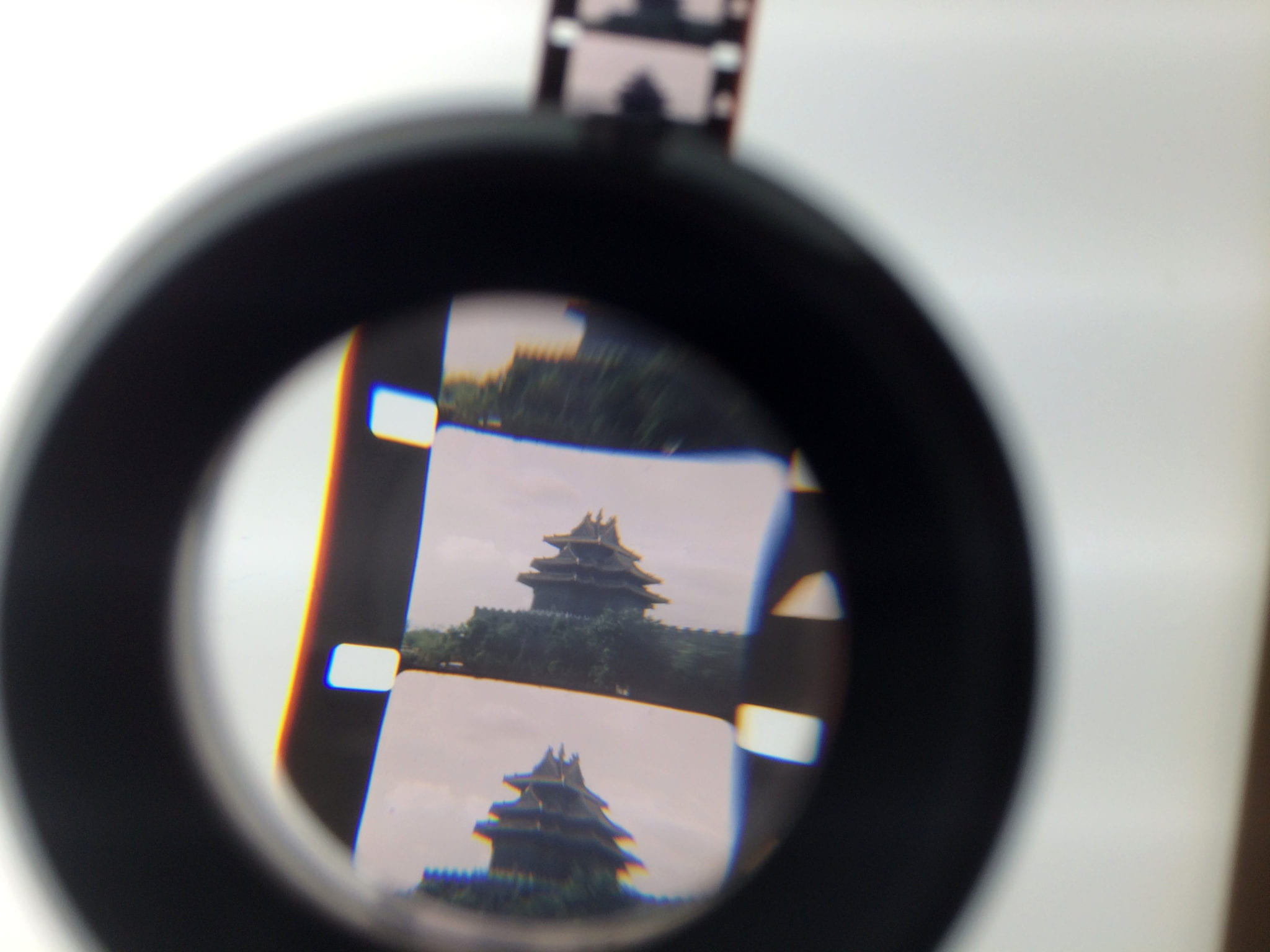Wan-go Weng’s A Town by the Yangtze (1951)
by Jonah Volk (Columbia University Libraries)
Wan-go H.C. Weng (also known as Weng Wango) is a Chinese-American filmmaker, writer, art historian and collector, poet, and master calligrapher. Born in 1918 in Shanghai, and still alive at the age of 101, he is the great-great-grandson of Weng Tonghe, a prominent 19th century Confucian scholar. Moving to the United States in 1938 to study engineering at Purdue University, Weng later studied art at the University of Wisconsin, and had a decades-long career producing educational and sponsored films. Widely respected in the world of Chinese art experts, Weng has published several books and contributed artworks to major museum collections and exhibitions, yet his film work remains little known.
Beginning his work in film in the 1940s, Weng produced dozens of titles, many focusing on Chinese art, history, and culture. These include a series of films on Chinese cities from the late 1940s, a series on Chinese arts and crafts from the 1950s, and a series on Chinese history from the 1970s. These films were mostly produced through non-profit and philanthropic organizations, including the Hampton Foundation and the China Institute (for which he served as President during the 1980s), and distributed on the U.S. educational film circuit; he was also commissioned to produce a series of short films about traditional Chinese crafts for Expo ‘70, held in Osaka, Japan. In addition to his films about China, he made many sponsored films on other topics, ranging from New York City libraries to the American flag.
The film being shared as part of the Orphan Film Symposium is A Town by the Yangtze, one of his “Land of China” series of educational films that he shot in China in the late 1940s, between the end of World War II and end of the Chinese Civil War, and distributed in the U.S. beginning in 1951. The film was shot on 16mm Kodachrome; it is 10 minutes long and has English narration, delivered by Weng himself. While the other films in this series spotlight major Chinese cities (Peking, Nanking, Tientsin), this film focuses on Changshu, a small city notable primarily as the ancestral hometown of the filmmaker. The film highlights both the cultural heritage of Changshu, home to many notable poets and scholars, as well as the everyday life of its inhabitants, including farmers and fishermen. In keeping with this symposium’s theme of Water, A Town by the Yangtze shows the many ways that the river is woven into the lives of the people of Changshu. It depicts a bygone era for the city and the river, before China’s rapid growth and industrialization in the second half of the 20th century would transform Changshu into an industrial metropolis with a population of more than a million.
This film was digitized in 2018 by the MediaPreserve on behalf of Columbia University Libraries from the original Kodachrome A&B rolls and optical soundtrack.

A frame of 16mm Kodachrome film shot by Weng Wango in Beijing, c.1947-48. (C.V. Starr East Asian Library, Weng Wango Collection, Film ID WW0110)
Several years ago, Mr. Weng donated his collection of films to Columbia’s C.V. Starr East Asian Library, including prints and/or master elements for most of his professional work, as well as home movies. The films have been surveyed and rehoused, and over 150 of them have now been digitized. More information about the preservation work done on this collection can be found in this blog post. For more details about the collection or to inquire about access to the films, please contact the Starr Library.
— Jonah Volk